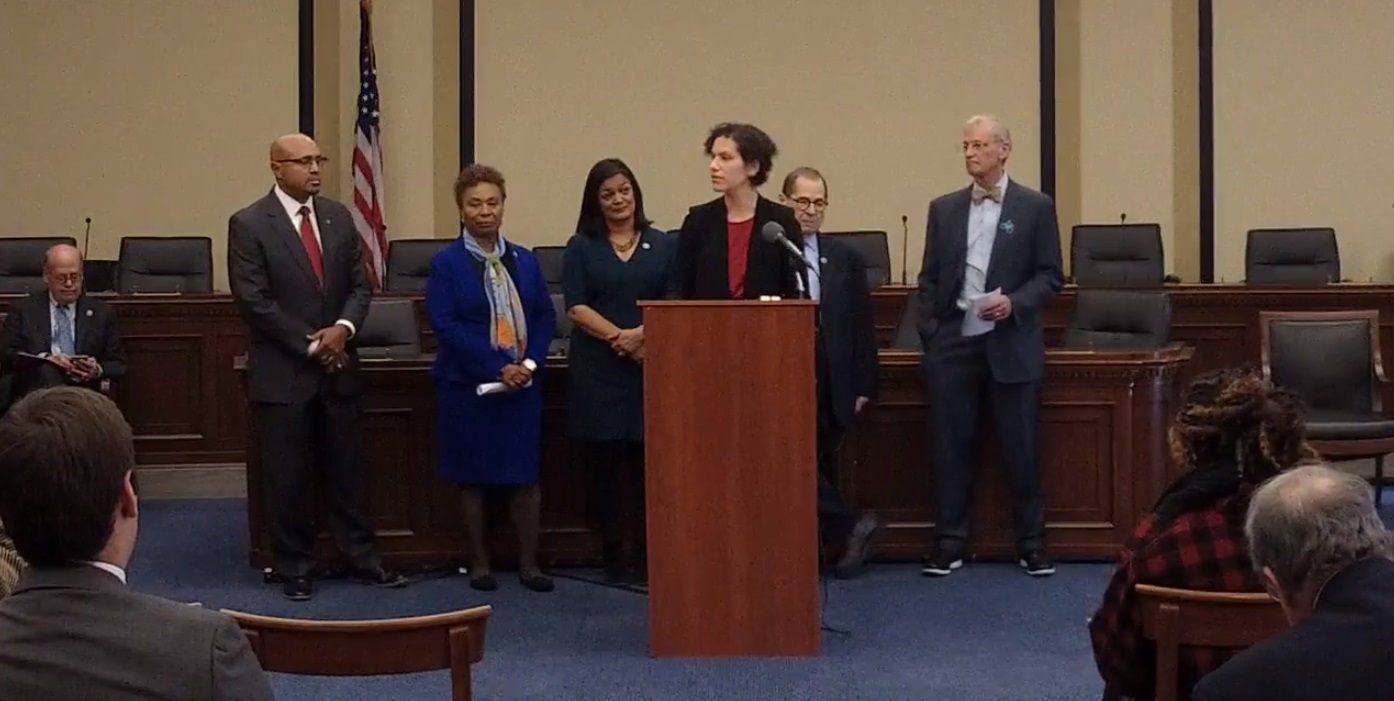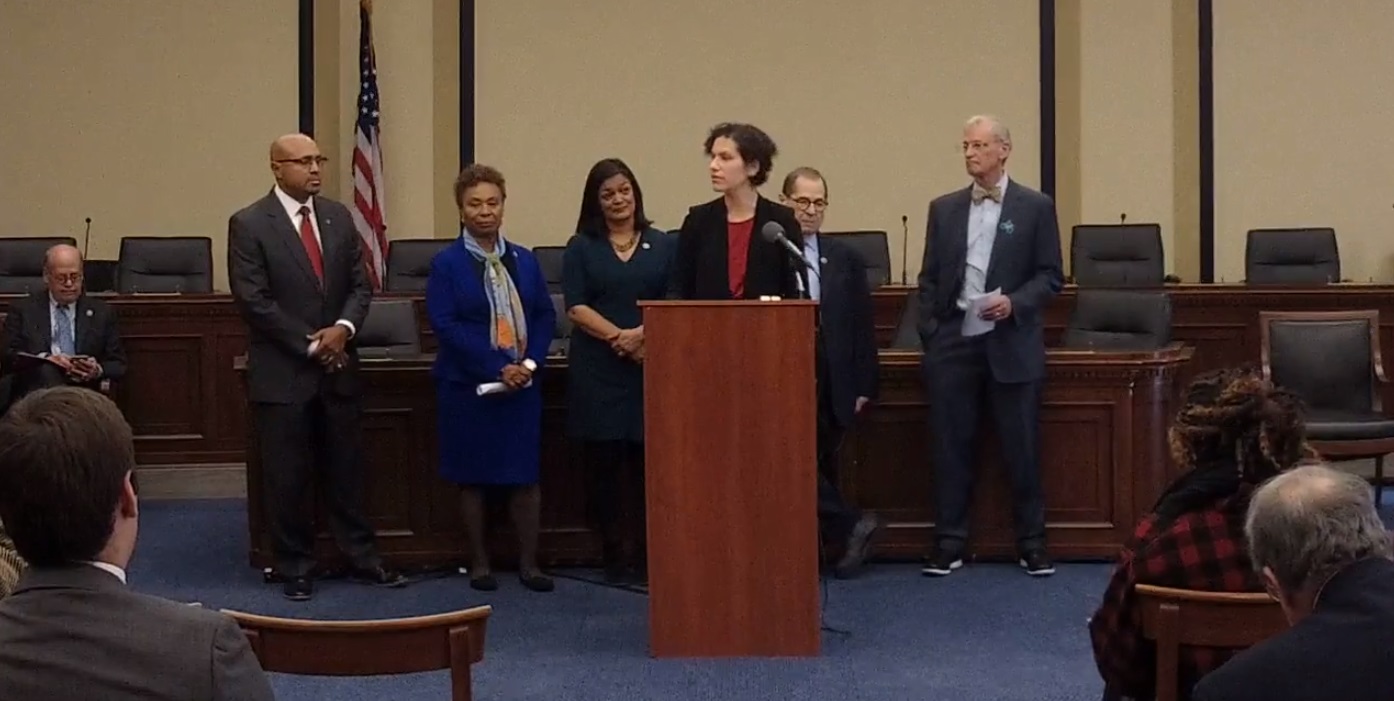
The following remarks were delivered by Drug Policy Alliance Executive Director Maria McFarland Sánchez-Moreno’s at Tuesday’s House Judiciary Committee press conference ahead of Wednesday’s historic MORE Act mark-up and vote on whether to send the legislation to the House floor. She was joined by Chairman Jerry Nadler, Rep. Barbara Lee, Rep. Earl Blumenauer, Rep. Nydia Velázquez, Rep. Pramila Jayapal, Rep. Steve Cohen and Law Enforcement Action Partnership (LEAP) Executive Director Neil Franklin.
“The United States’ decades of marijuana prohibition have come at a tremendous price. Prohibition has served as an excuse for heavy-handed policing, policies like “stop-and-frisk” in New York or civil asset forfeiture–the seizure of private property with little to no process, large-scale deportations, and incarceration. Even today, more than 650,000 people are arrested every year for marijuana offenses. Many of them carry the burden of a conviction for the rest of their lives, facing tremendous barriers to accessing jobs, housing, college loans, and more—some even lose the right to vote. Over the decades, millions have been impacted.
And those harms have not fallen equally on all Americans: instead, Black and Brown people have borne the brunt of them. Black people in particular are three times as likely as white people to be arrested for marijuana use, even though surveys indicate that they use marijuana at roughly the same rate—perhaps even less—than white people.
The reality is that marijuana prohibition has, for millions of Black and Brown people in the US, been the gateway to arrests, incarceration, loss of livelihoods and lives. Those are concrete, real harms, that affect real people every day. Continuing the status quo of prohibition is not just inaction: it means turning your back on those harms, and condemning hundreds of thousands every year to continuing that misery and oppression.
Yet in recent years, we’ve seen tremendous progress, with multiple states regulating marijuana for adult use. And the wonderful news is that so far the evidence shows that regulation is producing a range of benefits, from increased revenue for the state to stronger protections for consumers. Meanwhile, it has not led to increased marijuana use by teens or the other supposed harms that the critics had warned about.
At the same time, at the Drug Policy Alliance, we have kept our eye on the ball of both ending the devastating harms of prohibition and, to the extent possible, beginning to repair them. That’s why we have partnered with other national civil and human rights organizations to form the Marijuana Justice Coalition, which has worked to ensure that federal marijuana reform puts those who have been most harmed by prohibition front and center.
That’s also why we have worked closely with groundbreaking leaders in the House, like Representative Barbara Lee, Chairman Jerry Nadler, Chairwoman Maxine Waters, Chairman Jim McGovern, and I am delighted today to stand with them in support of the MORE Act, which is the most robust marijuana reform legislation introduced at the federal level to date. The bill includes key elements to allow states to move forward with marijuana regulation, but also to ensure that the communities most harmed by prohibition are not left behind, but also benefit from marijuana reform.
The MORE Act recognizes that marijuana reform is fundamentally a matter of justice. I’m so pleased that it is now coming up for a mark-up, and I encourage all members of Congress to support it.”











